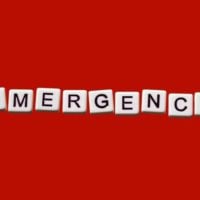Deadline: 23-Sep-21
The European Commission is calling for proposals for Modelling and Quantifying the Impacts of Open Science Practice.
Horizon Europe has a new level of ambition – to maximise the impact of EU research and innovation funding for European science, economy and the wider society. It marks a paradigm change in the design of the EU R&I Framework Programmes (FP) from an activity-driven to an impact-driven programme.
The COVID-19 pandemic demonstrates the importance of R&I cooperation to deliver solutions to society’s most demanding needs. Delivering Europe’s recovery is a priority as are the green and digital twin transitions. To match these challenges, a new level of ambition that links better R&I with the economy, as well as with education and training, is necessary to put the EU’s scientific knowledge to work.
The new ERA calls for deepening existing priorities and initiatives through new and stronger approaches. The green and digital transitions and the recovery call for cooperation between the Commission and the Member States. They require the setting of new priorities, launching ambitious joint initiatives and developing common approaches between policies.
Scope
Open science consists of sharing knowledge and data as early as possible in the research process, in open collaboration with all relevant actors, including citizens. The mainstreaming of open science practice is driven by expected impacts:
- on the research system, e.g. increased efficiency, better reliability, and better responsiveness towards societal challenges;
- on the innovation system, e.g. faster innovation when results are shared earlier, and innovations more directed towards societal challenges;
- on the interface between science and society, e.g. more productive interactions among academia and other knowledge actors, and higher trust of society in the science system when researchers and citizens are engaged. While past projects have started building an evidence base, this remains fragmented and incomplete. A broad and comprehensive evidence base would help define new policies for open science, drive further uptake and help communicate on open science.
Funding Information
Grant amount is equal to or greater than EUR 500 000 except for:
- public bodies (entities established as a public body under national law, including local, regional or national authorities) or international organisations; and
- cases where the individual requested grant amount is not more than EUR 60 000 (lowvalue grant).
Expected Outcomes
- Projects are expected to contribute to the following expected outcomes:
- Structured evidence of scientific, societal and economic impacts of open science practice, complemented by the new methods, tools and data required to measure them.
- Better knowledge on how impacts develop and how a diversity of benefits can be achieved at scientific, societal and economic levels.
- Better understanding on how the practice of open science can contribute to the increased reproducibility of research results.
- These targeted outcomes in turn contribute to medium and long-term impacts:
- Prioritisation of policy actions for open science, and improved policy making on open science.
- Maximised impact of open science.
- Increased capacity in the EU R&I system to conduct open science and to set it as a modus operandi of modern science.
Eligibility Criteria
- Any legal entity, regardless of its place of establishment, including legal entities from non-associated third countries or international organisations (including international European research organisations) is eligible to participate (whether it is eligible for funding or not), provided that the conditions laid down in the Horizon Europe Regulation have been met, along with any other conditions laid down in the specific call topic.
- A ‘legal entity’ means any natural or legal person created and recognised as such under national law, EU law or international law, which has legal personality and which may, acting in its own name, exercise rights and be subject to obligations, or an entity without legal personality.
- To be eligible for funding, applicants must be established in one of the eligible countries, i.e:
- the Member States of the European Union, including their outermost regions;
- the Overseas Countries and Territories (OCTs) linked to the Member States;
- eligible non-EU countries:
- countries associated to Horizon Europe
- low- and middle-income countries
For more information, visit https://bit.ly/2U49X5e









































